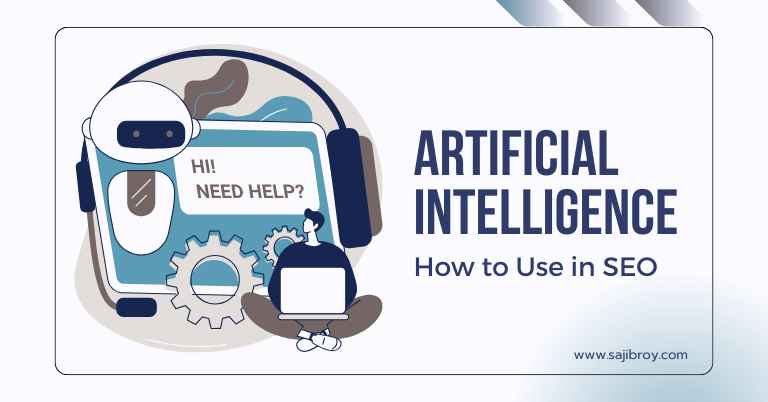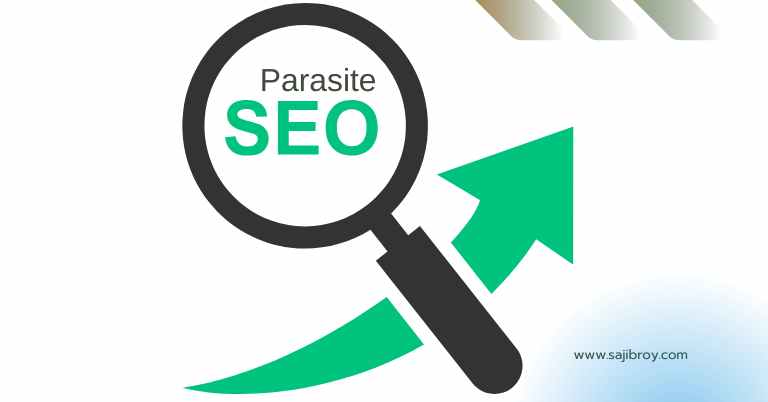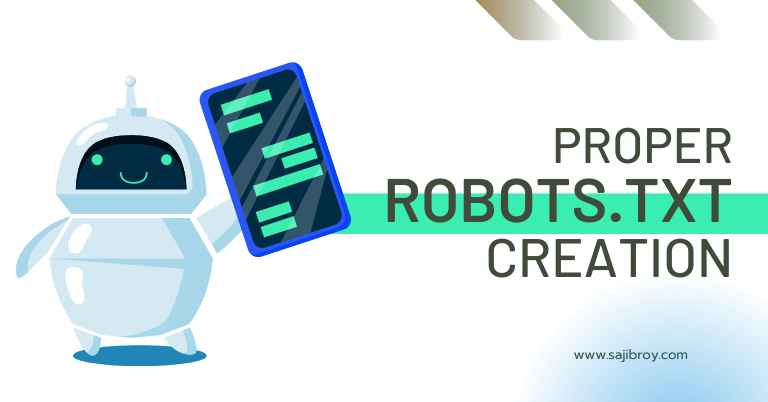There’s no doubt that digital media has changed the marketing landscape. From social media to email marketing, the way businesses reach and engage with their customers has evolved. However, not every aspect of marketing has kept pace with these changes.
Traditional forms of advertising, such as print and television, are still used by many businesses. And while they may not be as effective as they once were, they can still be a valuable part of a marketing strategy.
- Why Do You Think You Would Succeed as a Social Media Manager?
- Top 8 Social Media Marketing Channels that Develop Your Brand in 2023
One aspect of marketing that has not changed with digital media is the need to research your target audience. You need to understand who your target audience is, what their needs are, and what they are looking for before you can create effective marketing campaigns. This was true before digital media and it is still true today.
Let's See the Topic Overview
What Impact Do Digital Media Have on the Marketing Mix Quizlet?
Digital media has had a profound impact on the marketing mix. It has allowed businesses to reach a wider audience more effectively and efficiently. It has also made it possible to track and measure results in real time, which has helped businesses to make better decisions about their marketing strategies.
Overall, digital media has made the marketing process more effective and efficient and has allowed businesses to reach a larger audience with less effort.
What is the Difference between Digital Media And Conventional Marketing Techniques Quizlet?
Digital media is a catch-all term for various types of electronic communication (i.e., online) including websites, social media, email, and mobile applications. On the other hand, conventional marketing techniques are more old-school and typically involve print advertisements (e.g., in newspapers or magazines), direct mail, telemarketing, or face-to-face interactions. So what’s the difference between digital and traditional marketing?
It really comes down to reach and engagement. Digital marketing allows you to reach a wider audience with your message more quickly and easily than traditional methods. And because people are spending more time online than ever before, you’re more likely to be able to engage them while they’re there.
Which Characteristic Distinguishes Digital Marketing from Traditional Marketing?
Digital marketing is a process that includes the use of internet-connected devices to promote and sell products or services. This type of marketing uses various online channels such as email, social media, websites, and search engines to reach its target audience. Traditional marketing, on the other hand, is a more traditional approach that uses offline channels such as TV, radio, print ads, and direct mail.
Digital Marketing More Effective Than Traditional Marketing
One of the main characteristics that distinguish digital marketing from traditional marketing is its ability to track data and measure results. With digital marketing, businesses can track how many people saw their ad, how long they spent looking at it, whether they clicked on it, and what actions they took after viewing the ad. This level of data analysis is not possible with traditional marketing methods.
Another key difference between digital and traditional marketing is the way in which messages are delivered to the target audience. With digital marketing, businesses can target their ads very specifically to certain demographics or even individual users. Traditional advertising generally relies on mass media outlets like television or newspapers where businesses cannot control who sees their ad.
Overall, digital marketing provides a more targeted, measurable, and cost-effective way to reach consumers than traditional marketing methods.
What of the Following Statements is True in Both Conventional Marketing And Digital Marketing?
There are a few key things that conventional marketing and digital marketing have in common. Firstly, both types of marketing aim to reach a target audience and promote a product or service. Secondly, both use various channels to reach their audiences, including TV, radio, print, and online.
Finally, both types of marketing require careful planning and execution in order to be successful. However, there are also some key differences between conventional marketing and digital marketing. Conventional marketing is typically more expensive than digital marketing, as it uses traditional channels that can be costly to advertise on.
Additionally, conventional marketing can be less targeted than digital marketing; for example, a TV ad will be seen by everyone who watches that channel, regardless of whether they are interested in the product or not. Digital marketing offers a number of advantages over conventional marketing. It is generally more cost-effective as it uses online channels which are often free or very low-cost to utilize.
Additionally, digital marketing is much more targeted than conventional methods; for example, online ads can be targeted specifically at users who have previously shown an interest in similar products or services. This makes digital marketing much more effective in terms of reaching the right people with the right message.
As a Social Networking Staple That Attracts Millions of Viewers Each Month, Twitter
Twitter is a social networking site that allows users to post short messages, or “tweets,” of up to 280 characters. Users can also follow other users and retweet, or share, other users’ tweets. Twitter was founded in 2006 and has since become one of the most popular social networking sites on the web.
According to Twitter’s own statistics, there are over 486.0 million active monthly users (July 2022) and 1.3 billion total registered users. Users often turn to Twitter for real-time information about current events, newsworthy items, and popular culture. For example, during major sporting events like the Super Bowl or the World Cup, Twitter becomes a veritable hive of activity as users tweet about the game in real-time.
In addition to being used as a source of information, Twitter is also increasingly being used as a platform for marketing and advertising. Many businesses now use Twitter to reach out to potential customers and promote their products or services. If you’re new to Twitter, getting started is easy.
Simply create an account at twitter.com and start following other users whose tweets you find interesting.
Which of the Following Statements is True of the Impact of Digital Media in the Marketing Mix?
Digital media is one of the most important tools in the marketing mix. It allows businesses to connect with their target audiences in a more personal and interactive way. Additionally, digital media can help businesses track and measure results more effectively than traditional methods.
As a result, digital media should be given careful consideration when developing any marketing strategy.
One of the Most Important Benefits of Digital Marketing
There are numerous benefits of digital marketing, but one of the most important is that it is cost-effective. Traditional marketing methods can be very expensive, and small businesses may not have the budget to invest in these techniques. Digital marketing allows you to reach a large audience for a fraction of the cost of traditional methods.
Another important benefit of digital marketing is that it is highly targeted. You can use various techniques to target your ideal customer base with laser precision. This ensures that you are only reaching those who are most likely to be interested in your product or service, which leads to higher conversion rates.
Digital marketing also provides you with real-time results so you can track your progress and adjust your strategy on the fly. This allows you to see what’s working and what isn’t so you can make necessary changes to ensure maximum success. If you’re looking for a more efficient and cost-effective way to market your business, then digital marketing is the way to go.
Which Scenario Makes a Reference to E-Business?
E-business is the conduct of business processes on the internet. These business processes include the exchange of information, money, and goods. E-business can be conducted between companies, individuals, and other organizations.
The term “e-business” was first coined in 1996 by IBM’s then Chief Executive Officer John Akers. There are many different scenarios that make a reference to e-business. One example is when a company sells products or services online.
This type of e-business is often referred to as e-commerce. Another example is when a company uses the internet to manage its internal operations such as human resources or finance. This type of e-business is often referred to as enterprise resource planning (ERP).
The growth of e-business has been exponential over the past few years. This growth can be attributed to the increasing popularity of the internet and mobile devices, as well as advancements in technology that have made conducting business online easier than ever before. With more and more businesses going online, it’s important to understand what e-business is and how it can be used to your advantage.
Are Websites Where Users Can Add to Or Edit the Content of Posted Articles
There are many websites that allow users to contribute to or edit the content of posted articles. This can be a great way to get involved in the community and help out with accuracy and clarity of information. However, it is important to be aware of the guidelines set by each website before contributing, as well as any potential risks.
Some websites that allow for user-contributed content are Wikipedia, IMDB, and Rotten Tomatoes. These sites all have different policies regarding what kinds of changes can be made, but generally speaking, anyone can make suggestions for edits or additions. However, it is important to note that not all changes will be accepted – Wikipedia, for example, has a team of editors who review suggested edits before deciding whether or not to implement them.
Another thing to keep in mind when contributing to these kinds of websites is the possibility of vandalism. Because anyone can make changes, there is always the risk that someone will maliciously alter information in an attempt to cause confusion or harm. As such, it’s important to be vigilant about checking facts and reverting any incorrect changes that you may come across.
In general, contributing to user-editable websites can be a fun and rewarding experience. Just be sure to familiarize yourself with the rules and guidelines set by each site before getting started!
A Successful Digital Marketing Strategy Focuses On
As the world of marketing continues to evolve, digital marketing has become an increasingly important part of any successful marketing strategy. A digital marketing strategy focuses on creating and distributing content that is relevant to your target audience and engaging them through various digital channels such as social media, email, and your website. In order to create a successful digital marketing strategy, you need to first understand your audience and what they are looking for.
Once you know this, you can create targeted content that speaks to their needs and interests. It’s also important to distribute this content across multiple channels so that your audience can find it easily. And finally, you need to engage with your audience regularly to keep them coming back for more.
By following these steps, you can create a successful digital marketing strategy that will help you reach your business goals.
A Factor That Has Sparked the Rise of Consumer-Generated Information
The internet has provided a platform for consumers to share their experiences and opinions about products and services. This factor has sparked the rise of consumer-generated information, which is often more trustworthy than traditional advertising. When making purchase decisions, customers frequently consult online reviews and social media posts before committing to a particular product or service.
In fact, studies have shown that nearly 90% of consumers trust online reviews as much as personal recommendations. And, 62% of consumers say they are more likely to purchase a product or service after reading positive reviews. This trend toward trusting consumer-generated information over traditional advertising is only going to continue to grow.
As such, businesses need to focus on providing excellent customer experiences that will result in positive online reviews and social media posts.
Which of the Following is Not True of Digital Media Products
Digital media products are those that can be created and consumed on digital devices, such as computers, tablets, and smartphones. They include things like e-books, online courses, digital music, and video games. While there are many benefits to digital media products, there are also some potential drawbacks.
One potential drawback of digital media products is that they can be difficult to access if you don’t have a reliable internet connection. If you’re trying to access an e-book or online course while you’re on the go, for example, you might not be able to do so if you don’t have a strong signal. Additionally, digital media products can be more expensive than their traditional counterparts.
For instance, a new paperback novel might cost $15, while a new e-book could cost $20 or more. Another downside of digital media products is that they can be easy to pirate. When someone illegally copies and distributes copyrighted material (such as an e-book or piece of software), it’s known as piracy.
This not only hurts the creators of the original product (who may not see any compensation for their work), but it also harms those who purchase pirated copies (since they’re often lower in quality). Finally, some people simply prefer physical versions of media products over digital ones. For example, they might prefer reading a paperback book over an e-book because it’s easier on their eyesight or because they like the feel of turning pages.
Overall, there are both pros and cons to using digital media products. It’s important to weigh these carefully before deciding whether or not to use them.
Conclusion
It’s no secret that digital media has drastically changed the marketing landscape. What may be less obvious, however, is which aspects of marketing have not changed with the rise of digital media. In fact, some things have stayed exactly the same.
For one, businesses still need to identify their target market and craft a message that resonates with them. Additionally, effective marketing still requires creativity and an understanding of human psychology. Finally, success still depends on hard work and consistent effort.
So yes, digital media has changed marketing in many ways. But at its core, it is still about connecting with people in a way that inspires them to take action.
Keep Learning With Sajib Roy
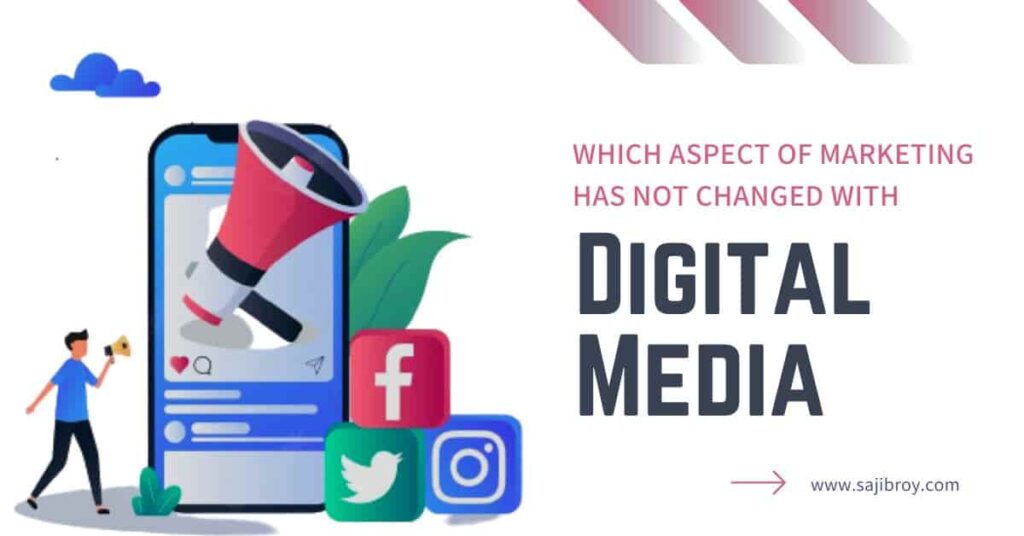
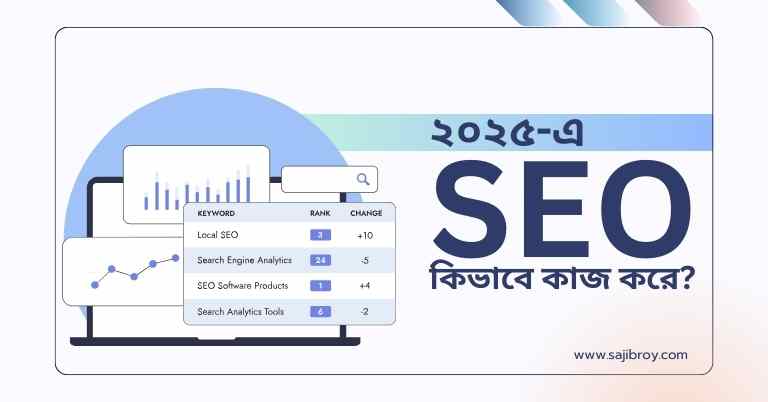


![6-Month Local SEO Plan [Download Your Complete Proposal Template]](https://www.sajibroy.com/wp-content/uploads/2025/01/6-Month-Local-SEO-Plan-Download-Your-Complete-Proposal-Template.jpg)

